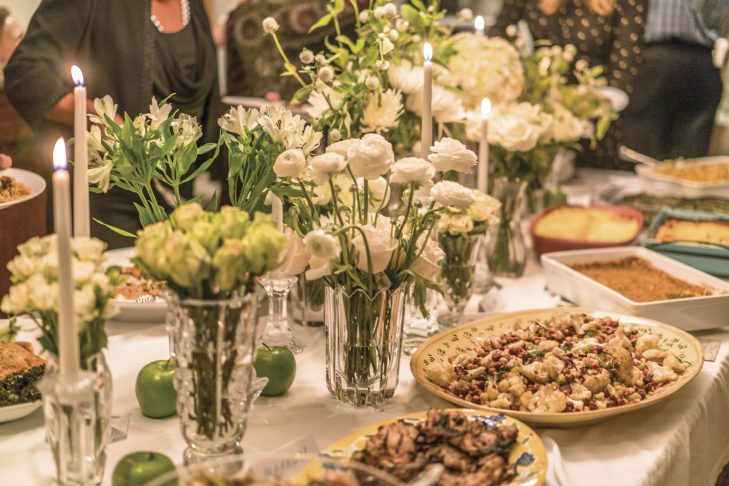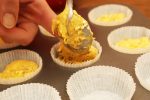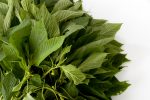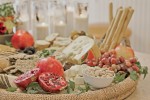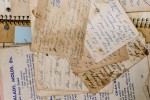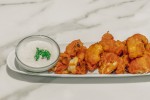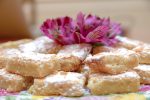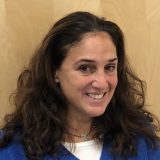I’m sitting at Panera with my three lovely co-editors at one of our early cookbook meetings. They are talking about things like Maldon salt and quince jelly and ingredient substitutions for their favorite Ina Garten recipes. They’ve now moved onto brining. Brining? I’m quite sure I look dazed but am trying hard to appear engaged, nodding and smiling at appropriate intervals. I’ve mentioned before in passing that I am not much of a cook, but I’m not sure they understand the extent of the problem. Like, I really don’t cook. I have no idea what Maldon salt is, I’ve never opened an Ina Garten cookbook and I just googled “brining.”
Yes, I am one of the editors of the “From Our Kitchens” cookbook. (Please do not let this scare you away from ordering this magnificent book!)
Here’s where I’d love to share a story that through the power of this cookbook experience, I miraculously transformed into a gourmet chef. It was not to be. But I do have a different story to tell.
From the beginning, the lure of this project for me was the stories—people’s family histories and holiday traditions, their memories of the generations preceding them and the treasured recipes brought from Eastern Europe, the Middle East or maybe just the Midwest. And so, it was that some months into this project (after having come clean about my lack of experience in the kitchen), I decided to visit my own family’s story too.
Though I hadn’t thought about it in years, I recalled that my nana had kept a Passover notebook. I sat and read. Her book was filled with her own Eastern European Jewish recipes and more modern (as in 1960s) recipe clippings, along with notes to herself written each Passover in her scroll-y handwriting. “Dear Sarlene,” she started each entry addressed to herself. Then she would recount each year’s significant events and family simchas, radiating pride in her children’s and grandchildren’s accomplishments. Her recipes made me laugh; they were filled with encouraging notes (“Don’t get discouraged if it doesn’t come out perfect the first time; try again”) and superlative descriptions (“Super recipe—guard this one!”). The pages of her book are now yellowed with age and smudged with food stains.
As I read my nana’s notebook, I was transported through time back to her kitchen. It’s the afternoon before Rosh Hashanah. I’m a young girl and she’s teaching me how to bake mandel bread. We’re spreading jelly and sprinkling walnuts and dropping raisins through the long rolls of dough. Her vintage kitchen is chaotic with piled pots and pans and spilled ingredients. It is filled with the smells of a Jewish holiday. There’s matzo ball soup bubbling on the stove and stuffed cabbage cooking in the oven.
Then it’s Thanksgiving. She’s talking to her turkey as she puts it in the oven. She calls it “Tom” and carries on an entire, one-sided conversation with the bird. We’re laughing. I know that later she will save the wishbone for me, tucking it away on the small, rounded shelf next to her sink, and after dinner we will break it together.
Then it’s Passover, the crown jewel of her holidays. Her kitchen cabinets are taped shut to hide the chametz just as her own mother had done a generation before. She’s pulling her matzo farfel muffins out of the oven. They are high and puffy and golden. She’s smiling and so proud. She shows me how beautiful they are. She holds up the muffins and someone snaps a photo.
I return to the present. Suddenly being a cookbook editor doesn’t feel quite so intimidating anymore. I’m inspired. I have a story, and somewhere deep inside I, too, am a cook. In the weeks that follow, I carefully transcribe my nana’s recipes, including her funny little asides and quirky titles. I scan the notebook’s pages so they will be preserved for my children’s children. And when Passover comes, I take out her recipe for farfel muffins. I follow her instructions slowly and carefully, exactly as she wrote them. I soak and mix and pour and bake, and like a Passover miracle, out of the oven come my nana’s muffins. They aren’t quite as puffy or as glowing as hers but they are hers and now they are mine. I hold up the muffins and someone snaps a photo.
My nana passed away many years ago. She wasn’t here to teach me to cook when I first started this cookbook project. But she did show up about halfway through and we cooked together, again.
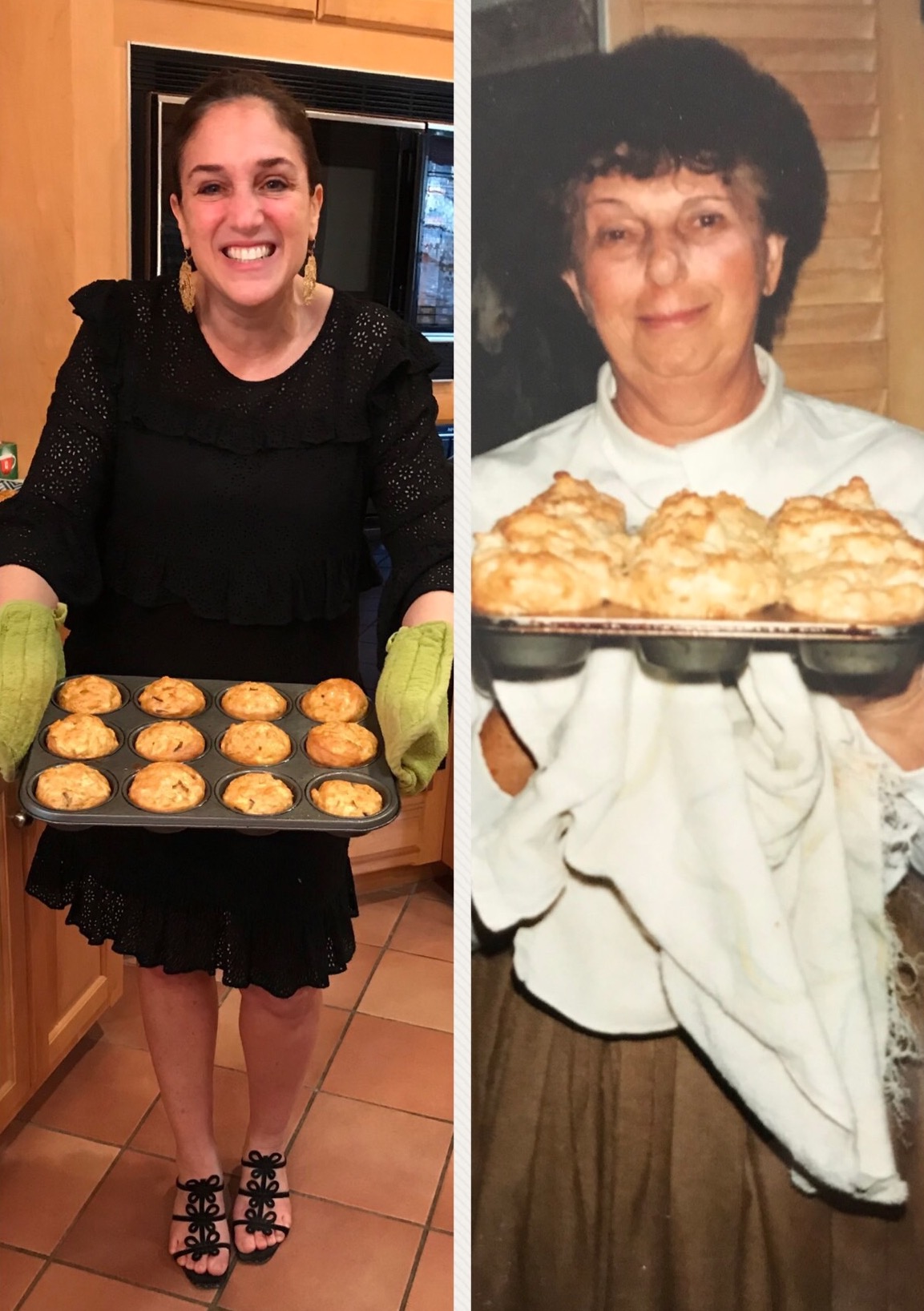
Order your copy of “From Our Kitchens: Recipes and Stories from the Boston Jewish Community” here.


